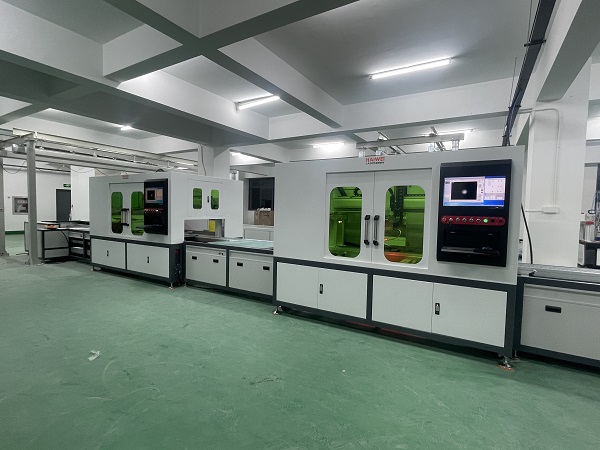Typical Process Flow of a New Energy Lithium Battery Module Pack Production Line
Understanding the full workflow of a new energy lithium battery module pack production line is essential for selecting the right equipment and ensuring quality, efficiency, and scalability. A well-designed line integrates multiple stages, from cell handling to final testing.

Cell Sorting and Inspection
The process begins with incoming cell inspection. Cells are sorted based on voltage, internal resistance, and capacity to ensure consistency within a pack. This step is critical for long-term performance and safety.
Module Assembly
Cells are arranged into predefined configurations using stacking or side-by-side layouts. Fixtures hold cells in place while busbars or connecting plates are laser welded or ultrasonically bonded. The new energy lithium battery module pack production line typically includes automated welding stations with real-time monitoring to ensure joint integrity.
Welding and Connection Verification
Laser welding is commonly used for its precision and low heat input. After welding, electrical continuity and resistance are tested to confirm proper connections and detect potential defects.
Insulation and Protection
Modules are insulated with protective films or sleeves. Thermal pads may be added to support heat dissipation. Some lines include automated dispensing for structural adhesives or potting materials.
Final Module Testing
Each module undergoes functional tests, including insulation resistance, high-voltage endurance, and open-circuit voltage (OCV) checks. Some systems perform short-circuit and polarity verification.
Pack Integration (Optional)
For complete packs, modules are assembled into a housing, connected in series/parallel, and linked to the battery management system (BMS). Final assembly may include cooling systems, wiring harnesses, and enclosure sealing.
A reliable new energy lithium battery module pack production line balances automation level with process control. Haiwei Laser offers cost-effective systems with stable operation and comprehensive service support, designed for long-term reliability. Focus on traceability, testing integration, and flexibility for different pack designs to support long-term production needs.
Recent Posts
- What are the advantages of laser welding machines in lithium battery pack production lines?
- What issues should be noted when choosing a lithium battery pack production line?
- Quality Inspection and Control of Lithium Battery Module Pack Production Line
- Cell grouping and sorting process in lithium battery module pack production line
- What are the safety hazards of lithium battery pack production lines and how can they be prevented?
INQUIRY

